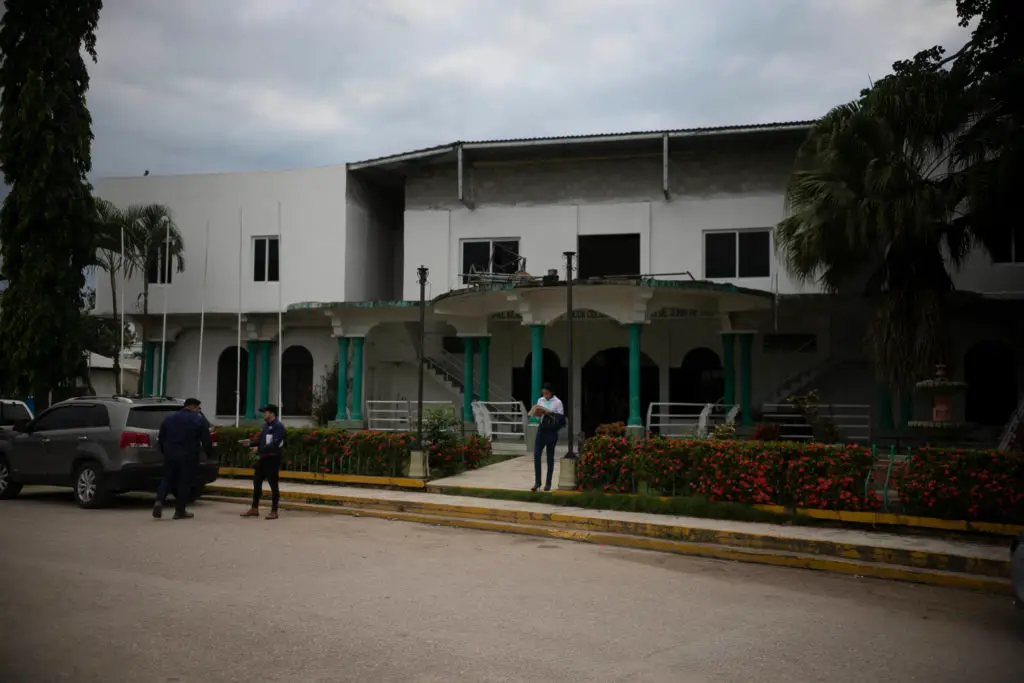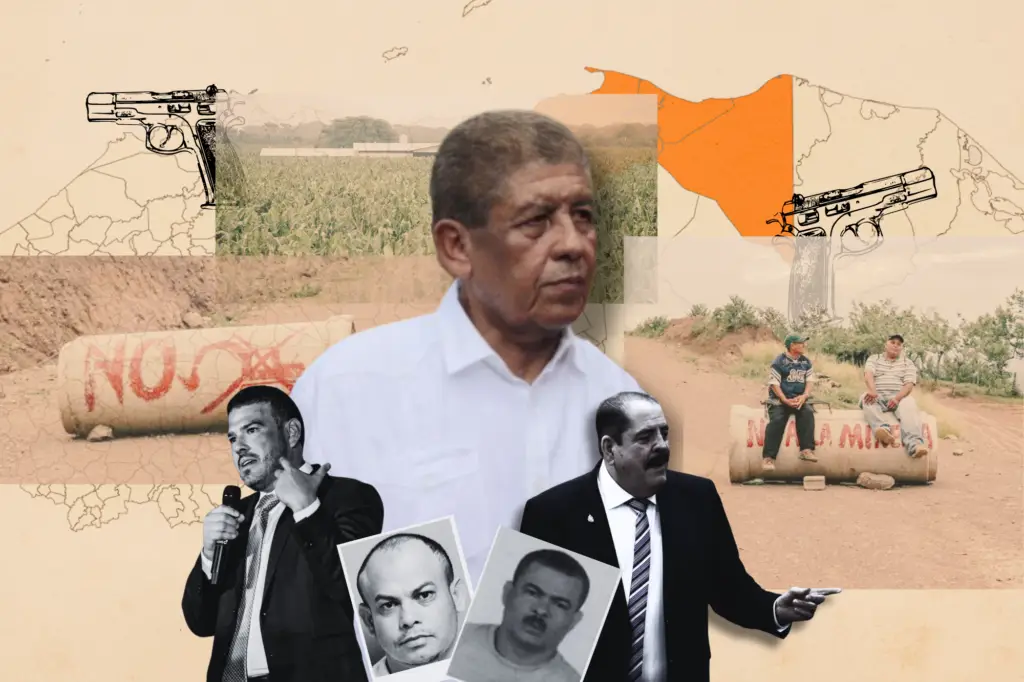After the fall of the Los Cachiros Cartel and its criminal allies, Adán Fúnez, mayor of Tocoa, remains a powerful figure in the department of Colón, in northern Honduras. How did he acquire so much power? His connections to organized crime and the support of the Libre Party’s top leadership can shed some light on this matter and explain the murders, corruption and precariousness in the region.
Text: Fernando Silva
Photography: Fernando Destephen
Cover: Persy Cabrera
Translation: José Rivera
Some things have changed in Tocoa, a city close to the Caribbean coast, since the Los Cachiros Cartel was dismantled and its leaders, the Rivera Maradiaga brothers, were handed over to U.S. authorities; for instance, their absence and the end of their narco-philanthropy and influence on politicians. But some things haven’t changed, especially governance and the transit of U.S.-bound cocaine.
Despite constant complaints from human rights organizations in the region, the most tenacious individual in Tocoa has achieved absolute power not only in the city but also throughout the department of Colón. His name is Adán Fúnez, and he has the support of Manuel “Mel” Zelaya Rosales, former president of Honduras and leader of Libre, the ruling party.
According to the testimonies of victims who have suffered violence and human rights violations, Fúnez has connections to criminal groups who have committed multiple crimes against campesino leaders and environmentalists. Additionally, public registries reveal the shady management of his properties and companies as well as his business connections to drug traffickers and politicians allegedly involved in corruption. Fúnez has also been under investigation for playing a key role in human rights violations in relation to the Guapinol mining conflict.
“When it rains in Tocoa, shit floats on the streets,” people with whom I spoke said repeatedly. These words start to make sense after a few days in the city because of the unbearable heat, torrential rains and flooded streets.
Tocoa, which was known as “Little Colombia” years ago for its connection to the drug trade, is growing. New stores and fast-food franchises keep coming to the city, but public services are inhumane: the energy crisis leaves people in the dark for days; there’s no proper rainwater drainage; infrastructure, including roads, is in terrible condition; and there’s no wastewater treatment system.
Years go by and some of the drug lords who moved around this city were extradited and summoned as key witnesses in the trial against former President Juan Orlando Hernández in the U.S. But the figure of Mayor Fúnez remains as he serves a third consecutive term in office.
Bribes that Fúnez allegedly received from the Los Cachiros Cartel were mentioned in trials against drug traffickers in the U.S. He even acknowledged his friendship with the Rivera Maradiaga brothers. Furthermore, his office—which has been heavily involved in violence and human rights violations against campesinos and environmentalists—has been under investigation by the Attorney General’s Office for alleged corruption.
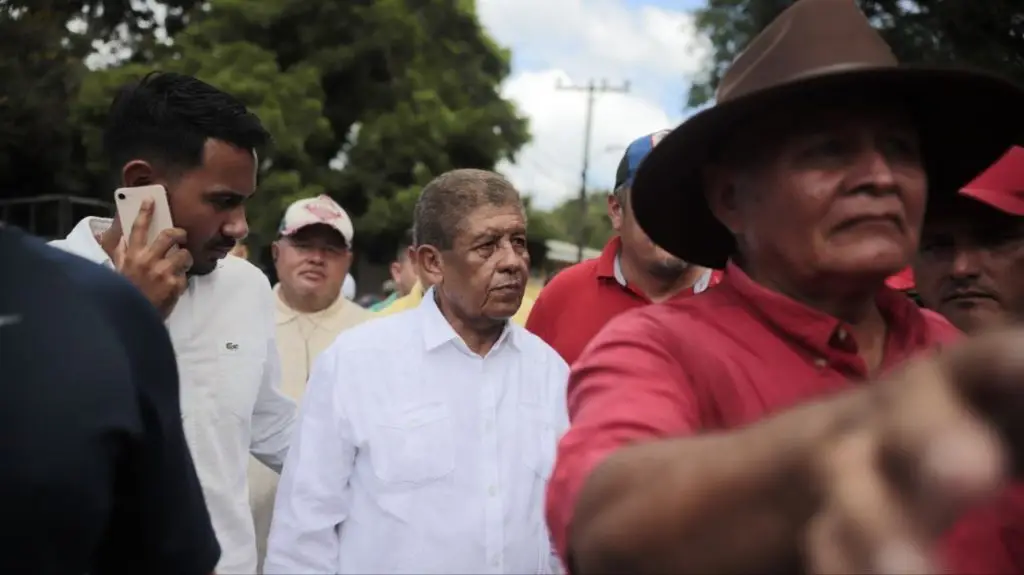
Possible connections between Fúnez and drug traffickers in Bajo Aguán
According to Honduras’ Police Statistic System, 88 violent deaths were registered in Tocoa in 2023, making it the fourth most violent municipality in the country. Analyst Sam Woolston says the national homicide rate fell by 13 percent between 2022 and 2023, a drop from 35.6 to 30.8 homicides per 100,000 inhabitants. However, Colón remains the most violent department in Honduras with a homicide rate of 57 per 100,000 inhabitants.
Much of the violence in the region is a consequence of the drug trade, and some politicians maintain their wealth and support in spite of accusations of corruption.
In 2017, during the drug trafficking trial against Fabio Lobo, son of former President Porfirio Lobo Sosa, a prosecutor asked Devis Leonel Rivera Maradiaga, former head of Los Cachiros, to name politicians in the department of Colón who had received bribes in exchange for facilitating the transportation of drugs and granting protection. He responded: “Oscar Nájera, Juan Gómez, Adán Fúnez and Midence Oquelí.”
In 2016, Fúnez acknowledged his friendship with Javier Rivera, the other leader of Los Cachiros, in an open council. “The concession granted to EMCO belongs to Javier Rivera, your friend and mine,” Fúnez proudly said. The company, owned by Lenir Pérez and Ana Facussé, is involved in a socio-environmental conflict in the region.
Since then, Fúnez has won two elections as mayor of Tocoa. In 2022, he was irregularly appointed by the Secretariat of Governance and Justice as governor of the department of Colón, but he quit his position and appointed Ixcer Barahona, one of his most trusted municipal employees.
Another politician from Tocoa who was mentioned by Rivera Maradiaga is Ramón “Moncho” Lobo, former congressional representative of the National Party and brother of former President Porfirio Lobo. Rivera Maradiaga accused Ramón Lobo of meeting with the cartel to facilitate drug trafficking operations and receiving bribes on behalf of former President Lobo.
Accusations confirm what was already known: Businessmen and politicians have had a close relationship with drug traffickers for a long time.
According to documentation from Honduras’ Property Registry, Fúnez already had a business relationship with Ramón Lobo before the accusations were made. He had bought a property from Lobo which was essential to his businesses.
In September 2006, Fúnez—who was already mayor of Tocoa—and his wife, Mirna Aleyda Ochoa, established Transportes Mirna, an intercity bus company that operates in some cities in northern Honduras and in the capital, Tegucigalpa.
In June 2007, the company acquired a plot of land in the municipality of Bonito Oriental, 40 kilometers from Tocoa, to set up its offices. The property cost 250,000 lempiras (around $10,119) and belonged to Ramón Lobo, who, according to documents, has several properties in Trujillo and Bonito Oriental, some of them since the late 1970s.
Although Ramón Lobo doesn’t face criminal charges related to his alleged connections to the drug trade in Honduras, he was accused by the Special Prosecutor’s Unit Against Corruption (Unidad Fiscal Especializada contra la Corrupción – UFERCO) in 2018 of allegedly committing fraud and embezzlement of public funds in the case “La caja chica del hermano”. Prosecutors say Lobo acted in collusion with Wilfredo Cerrato, secretary of State for the Administration and Financial Management of the President’s Office, to divert more than 13 million lempiras of public funds to their personal accounts.
In 2022, this investigation led to the forfeiture of two properties in the department of Colon: one property, which spans more than 500 blocks of land, is located in the municipality of Trujillo, and another one in Bonito Oriental. According to the Land Registry, both properties have a market value of more than 800,000 lempiras (around $32,434).
Despite losing those properties, proceedings against Ramón Lobo were suspended by Honduras’ Supreme Court, and while the Attorney General’s Office appealed this decision, it appears the case will be buried among the other unresolved corruption cases in Honduras.
In December 2021, Mirna Ochoa, bought a property from Ramón Lobo for 250,000 lempiras (around $10,000), the same sale price for which it was acquired in 2007. The same year that Ochoa bought the property, the company Transportes Mirna was dissolved and has been represented by a liquidator since.
According to an announcement published in a local newspaper in November 2012, Ochoa and Fúnez set up their transportation business as a limited liability company headquartered in San Pedro Sula, Cortés.
During the last decade, Fúnez’s company and family were also affected by the violence that has caused havoc in the region. Between 2016 and 2017, activities were suspended twice in protest at the lack of security and the extortion of which they are supposedly victims. In 2015 and 2018, two buses were attacked and set on fire. The company accused environmental activists who oppose the mining project in the region of causing the 2018 incident without presenting any evidence. Activists, on the other hand, say the incident was a set-up by the mayor to prosecute them.
Agreements between Fúnez and individuals connected to the drug trade did not cease. In 2012, he sold a property with an area of 1,641 square meters in Roatán, in the department of Islas de la Bahía, to Pacific Corporation. The manager of the company was Dionisio Mármol Chirinos, who was accused by the Attorney General’s Office in late 2020 of allegedly committing money laundering and for whom precautionary measures were issued.
Marmól Chirinos was involved with Fredy Donaldo Mármol, a drug lord who is serving a sentence in the U.S. for his role in an international drug conspiracy in Colombia, Guatemala, Honduras, Costa Rica, Mexico and the U.S.
Fúnez sold the property to the company, which has ties to money laundering and the drug trade, for 1.5 million lempiras even though it was valued at almost double the amount, 3.2 million lempiras, in 2020. In August 2021, the property was seized by a judge with national jurisdiction along with other properties owned by Fredy Marmól valued at almost 500 million lempiras.
In Tocoa, groups who oppose Fúnez know perfectly well that his connections to organized crime, particularly the drug trade, are essential for remaining in power, but they know it’s not the only factor.
Juan López—councilman in Tocoa, member of the Libre Party, and Fúnez’s political rival—says that corrupt businessmen, his friendship with Libre Party Coordinator Manuel Zelaya, and his connection to organized crime have granted him protection and continuity in power.
We met with López in the San Isidro Labrador church in downtown Tocoa. He told me about the first time that he, as member of the church’s parish council, asked Fúnez to not grant a mining permit to Los Pinares, a company owned by Lenir Pérez. But Fúnez said that he did not have the necessary information to process the request.
López had worked in Fúnez’s first political campaign in 2006, when he ran with the Liberal Party and was elected mayor of Tocoa. López considered him an ally who had similar religious views but this changed after the meeting in early 2014 and when he noticed the mayor’s arbitrary actions.
Since then, López joined the citizen resistance against the company that set up an ambitious mining project in the Carlos Escaleras National Park, a protected area. As a result, prosecutors filed trumped-up charges against him, and he spent a few days in prison and was accused of leading an alleged criminal organization. López was elected councilman in the municipality in 2021.
Although there was no one around during our conversation, López avoided words such as “drug trafficker,” “drug trade” or “organized crime.” He recalls that in 2021, when he ran for mayor against Fúnez in the general elections, he saw people close to him taking money out of large bags and giving it to constituents in exchange for their vote.
“Everyone knows he receives money from ‘institutions.’ A person who organized people from other municipalities to vote for Fúnez says logistics are paid for by individuals with ties to illegal businesses. That’s how he wins elections,” López said.
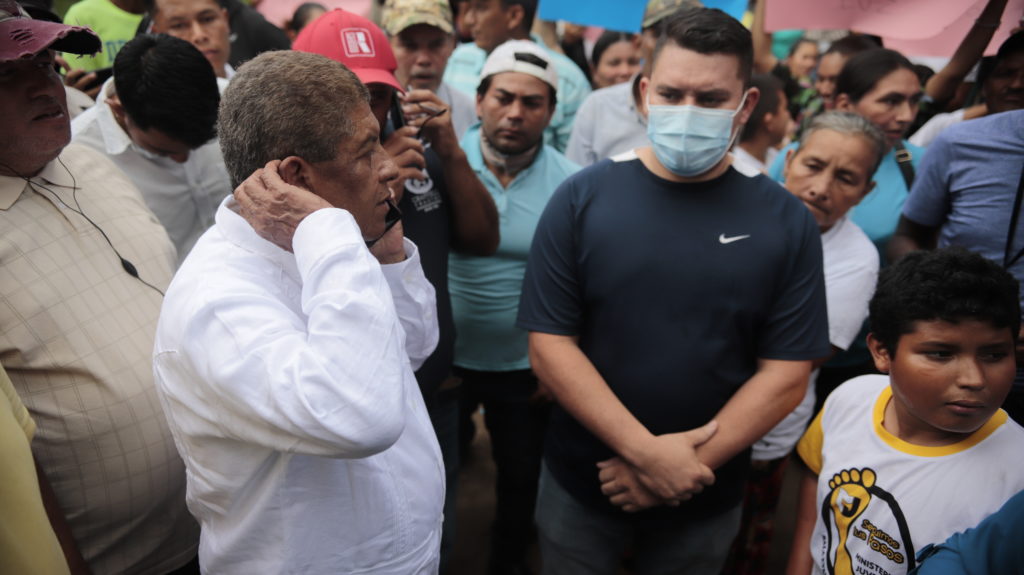
Hitmen who protect the mayor’s interests
Fúnez won the primary elections with the Libre Party on October 30, 2016, and gained a nomination for the mayor’s office in the 2017 general elections. Back then, his only rival was Esly Banegas, coordinator at Plataforma Agraria, campesina leader and environmentalist, whose son was murdered on election day outside of a night club in Tocoa.
Banegas says the crime remains unpunished since authorities did not conduct an investigation. She and other campesino leaders say perpetrators are part of the criminal and paramilitary group associated with Fúnez.
Three sources interviewed by Contracorriente affirm that although Fúnez does not personally lead criminal groups in the municipality, he is their ally.
According to testimonies, Fúnez has ties to three criminal groups, who are accused by prosecutors of committing several crimes, including illegal possession of weapons, drug trafficking and the murder of campesino leaders in Bajo Aguán, a very dangerous region where hundreds of violent deaths have taken place since 2010.
The first group associated with Fúnez is a “paramilitary group” that was led by Céleo Bautista Rodríguez Ponce – a fugitive, former president of the Unified Peasant Movement of Aguan (MUCA), and son-in-law of Rafael Alegría, assistant director at INA.
Honduran prosecutors and campesino leaders have repeatedly claimed that Rodríguez Ponce leads a group of hitmen responsible for dozens of violent deaths in the region. The Attorney General’s Office issued a warrant for his arrest in 2016 on charges of murdering campesinos in Bajo Aguán.
In October of the same year, relatives of José Angel Flores, then president of MUCA, and Silmer Dionisio George, a campesino who was part of Cooperativa Camarones, accused Rodríguez Ponce of murdering them.
Roughly one month later, prosecutors issued an indictment in the same case but against Osvin Nahúm Caballero and Wilmer Geovanny Fuentes.
Interpol agents apprehended Caballero in Mexico in 2018. At the time, he was one of Honduras’ most wanted individuals, and judges had issued eleven warrants for his arrest on different charges, including the murder of eleven people. Until then, Caballero had successfully evaded authorities and even appeared as deceased in civil registries.
The Unit of Investigation of Violent Deaths in Bajo Aguán (Unidad de Investigación de Muertes Violentas del Bajo Aguán – Umvibal) in the Attorney General’s Office followed up on the case. In 2021, Caballero was found guilty of murdering José Angel Flores and Silmer George and was sentenced to 40 years in prison.
Wilmer Fuentes Caballero was apprehended in the community of Las Mangas, Tocoa, in 2020. Authorities had issued three warrants for his arrest, and he was sentenced to 16 years in prison in January 2023.
Members of the community say Osvin Caballero’s mother confirmed that Mayor Fúnez paid for her son’s legal defense.
According to members of the campesino movement in the region, after committing the double crime in 2016, Rodríguez Ponce and the two hitmen who are now serving a sentence hid in a house in the Pedregal de Tocoa neighborhood provided by Fúnez. Then they moved to the community of Las Mangas, close to the Guapinol village, where planning of the first stage of the ambitious mining project Los Pinares—known as Emco Mining Company at the time—was underway.
In 2013, Los Pinares requested two mining concessions in the Carlos Escaleras National Park – named after the environmental activist who was murdered for his opposition to an African palm processing plant in the region. After a series of irregular activities, including the reduction of the protected area’s core zone, the concessions were granted to the company in 2014, allowing mining activities in 200 hectares of land.
After the concessions were granted, environmentalists from Río Guapinol who opposed the project received threats, especially after 2018, when they organized to prevent the company from entering with its machinery for a year. In total, 32 land defenders were prosecuted and six were murdered between 2018 and 2024.
Fúnez’s actions show that he supports the ambitious mining project. He even filed a complaint against environmental activists to Honduras’ National Human Rights Commission (CONADEH) in 2018. In 2023, when a temporary suspension of mining activities was made public, he told media outlets that “projects will only come and remain in Honduras when guarantees to protect investments are in place.”
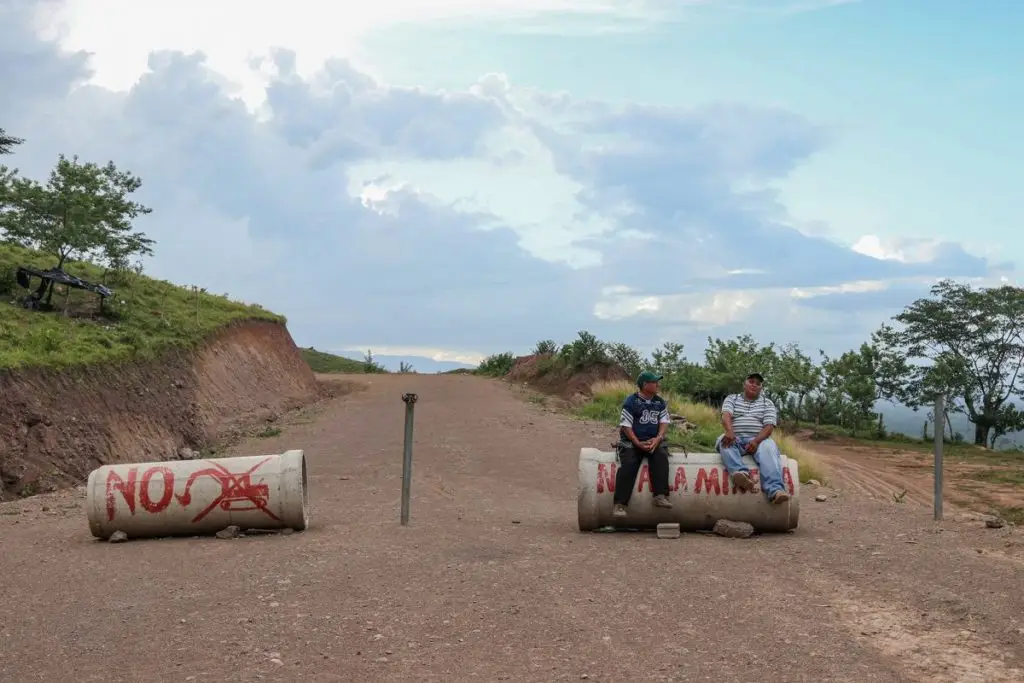
We talked to Banegas on several occasions. She said it’s clear that the mining company and the municipality have worked hand in hand. For instance, Otoniel Flores—a former employee of the Municipal Environmental Unit (UMA) in the Mayor’s Office, and employee at Pérez’s company since 2018—went to her house in 2020. “He tried to intimidate me into meeting with Pérez to negotiate the release of environmental activists of Guapinol from prison.”
Banegas recalls that episode well because Flores was replaced with Luis Alonso Tábora, who was known in the municipality for being a member of a criminal organization. Tábora didn’t last long in that position because he migrated to the U.S. He was murdered in the municipality of Pimienta, department of Cortés, in September 2019 on the same day he was deported to Honduras.
According to a source who is familiar with the case, Tábora was the leader of a group of hitmen called Los Tábora, which operated in the village of Ceibita and in Quebrada de Arena. He had migrated to the U.S. because he received threats from another criminal group.
Mayor Fúnez was recently linked to Los Cachos, a criminal group supposedly led by Juan Carlos Lezama, an individual who was identified by Plataforma Agraria for his involvement in acts of intimidation and threats against campesinos in Bajo Aguán.
The Police Directorate of Investigations and the Attorney General’s Office have identified Los Cachos as the material authors of multiple crimes in the department of Colón.
According to Yoni Rivas, member of the Coordination of Popular Organizations of Aguán (COPA), this group is not only involved in drug trafficking, threats, and murders but also protects the interests of businessmen and the mayor. He says this group was responsible for the murder of Mauricio Esquivel, a campesino from Cooperativa Tranvio, on December 22, 2022.
“Los Tábora operated in Ceibita, Los Cachos in Quebrada, and Rodríguez Ponce’s group in La Confianza. But it’s the same people who use a different name depending on where they conduct their activities. At the end of day, we are always one step ahead of them,” Rivas said.
Rivas explained that campesino leaders are constantly under threat from criminal groups. Sometimes they see hitmen drive around their houses in the evening or at dawn. Occasionally, members of communities are warned that there’s a reward on their heads.
A source, who wished to remain anonymous, said that Fúnez hired a group of hitmen in 2022 to murder the board of directors of a farmers’ cooperative and the leadership of La Plataforma Agraria, including Banegas and Rivas.
Despite all the murders that have taken place in the municipality of Tocoa, Fúnez requested the unrestricted use of weapons in Colón in April 2022, overturning a weapons ban implemented in 2012. “It’s better to allow people to carry weapons so they can defend themselves,” he said.
Funez’s acts of corruption and political connections
There was a swarm of people in the main hall at the Froylan Turcios Institute. They were angry and anxious. It was past 11 a.m. on Saturday, December 9, 2023. Around 2,000 people had been waiting for the open council called by Fúnez to begin. They gathered to discuss and approve the energy project Planta Ecotek, which is part of Grupo Emco, the same conglomerate that incorporates Los Pinares.
The majority are members of communities and activists who oppose the new project promoted by Pérez’s company. Reasons range from repeated human rights violations caused by Peréz’s business activities in the region, legal persecution against individuals who oppose these projects, and plans to use petcoke to generate electricity. According to the Center for Democracy Studies (CESPAD), petcoke is one of the most contaminating oil derivatives when incinerated to produce energy.
When Fúnez arrived at the institute, he remained outside the main hall and said the open council could not take place because of security risks despite the presence of the National Police since early in the morning.
Fúnez was surrounded by bodyguards and accompanied by Ixcer Barahona, his pupil and the governor of Colón. He left a few minutes after canceling the open council; he was probably embarrassed, and most people didn’t notice he left.
After Fúnez left, six of the ten municipal councilors proceeded with the open council. Local organizations and residents who were present held a popular assembly and rejected the energy project. But a few weeks later, Fúnez—ignoring the decision made by the population—called for another open council to approve the project.
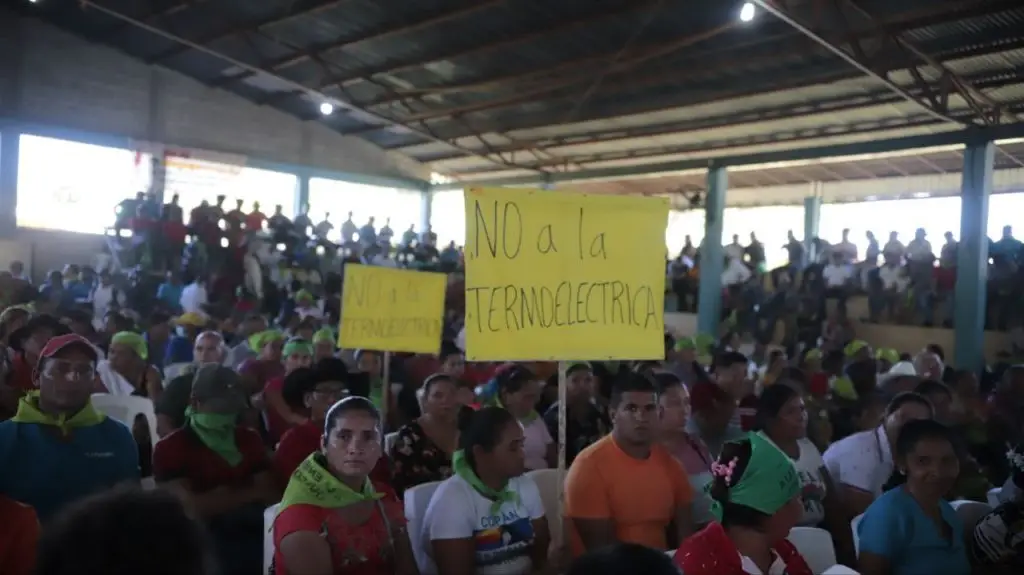
This was not the first time that Fúnez tried to influence the decisions of the population. In July 2022, the Technical Criminal Investigation Agency (ATIC) announced the investigation of forgery of public documents in relation to the open council held in 2016 in which the population expected to discuss the mining project, among other issues.
We had access to a copy of the original document and the forged one. At least two changes had been made to the document with the intention of facilitating mining activities.
Norma Agripina García, secretary of the municipality, changed item eight of the open council’s minutes, which states that participants discussed and approved “the socialization and development of mining projects ASP, ASP2, the ECOTEK processing plant and its respective 50W power plant in the municipality of Tocoa, Colón. Residents present in the open council stood up and raised their hand as a way of showing they approve the projects.” However, item eight of the original minutes does not mention said voting.
Similarly, item nine of the open council’s minutes mentions two agreements related to community requests, while the forged document includes another agreement, which was allegedly discussed and approved by both parties involved in the mining project. Additionally, unlike in the original document, the forged one mentions the participation of 101 persons from nine communities within the project’s impact area.
Honduran prosecutors launched an investigation in response to a complaint filed by the Members of the Municipal Committee for the Protection of Public Goods in Tocoa (Comité Municipal de Defensa de los Bienes Comunes y Públicos de Tocoa) in 2021. García’s actions, ordered by Fúnez, allowed the company to operate without restrictions and legally obtain environmental and operational permits.
Adilia Castro, member of the committee and Fundación San Alonso Rodríguez, said that Fúnez has become a “prominent figure” with unprecedented legal authority throughout the department and this was only possible with the support of the Libre Party and the Castro administration.
“What’s the connection between the Zelaya family and Adán Fúnez, and why do they protect such a corrupt politician? Let’s not forget that he got along well with the previous administration and he’ll get along just fine with the next one,” Adilia Castro said.
She added that Fúnez was given absolute power in order to guarantee the ambitious mining project’s operations and to oversee criminal operations in the region.
“After the Los Cachiros Cartel and former President Hernández were extradited to the U.S., the government and criminal groups with political ties were restructured. There’s no other explanation for Libre’s need to grant Fúnez so much power to,” Adilia Castro explained.
Fúnez is not only the main figure behind irregular activities in the municipality’s management but he also has connections to shady individuals within the Castro administration as public records show. For instance, Fúnez’s business, Transportes Mirna, has been legally represented by Edson Argueta, private secretary of Honduras’ President of Congress Luis Redondo, before the Honduran Institute of Transportation (IHTT).
In October 2023, Contracorriente reported that Luis Redondo and Edson Argueta obtained credit cards issued to National Congress, and these were used to pay for personal expenses such as delivery services, supermarkets, restaurants, hotels and plane tickets. Receipts of those expenses cannot be found on the transparency portal or billing statements.
Furthermore, Argueta is mentioned on a resolution of the National Electoral Council (CNE) as legal representative of the Libre Party.
Fúnez has had support from the Libre Party’s top leader, Mel Zelaya. In 2019, they arrived together at the open council to discuss environmental and social issues related to Inversiones Los Pinares’ energy project. On this occasion, faced with participants’ opposition, they declared the municipality of Tocoa free from mining, a promise which was not fulfilled.
According to members of the Libre Party in Tocoa, Fúnez and Carlos Zelaya, brother of Mel Zelaya and secretary of National Congress, have a very close friendship. Carlos Zelaya occasionally goes to Tocoa for several days to visit Fúnez and has accompanied him to important events. In April 2022, they met with Belinda Martínez, director of the Central American Integration Bank (BCIE), at a restaurant in Tegucigalpa to supposedly discuss the development of projects in the municipality.
In an interview with Salvadoran news outlet El Faro, Fabio Lobo said that Carlos Zelaya was also involved in drug trafficking during Mel Zelaya’s administration between 2006 and 2009.
The Zelaya family has protected Fúnez to such an extent that prior to the primary elections, in which he was challenged by Banegas, Manuel Zelaya tried to convince her to drop out of the campaign.
“I wanted to talk to you. Don’t run for the Mayor’s Office and leave Fúnez alone. You can run for Congress instead,” Mel Zelaya told her.
“We have our own procedures, and you cannot tell me to run for Congress,” she responded, knowing that very few members of the Libre Party dare question him.
“Well, try winning the elections,” Mel said defiantly.
Banegas says that Mel Zelaya’s confidence stems from knowing that Fúnez is a “cheater and a fraud.”
Loyalty between the Zelaya family and Fúnez goes back to 2009, when Fúnez supported Mel Zelaya’s initiative to have a fourth ballot box in the November elections, a decision that led to a military coup. But their friendship has gone through difficulties; Fúnez once got down on his knees and apologized to leaders and other members of the Liberal Party—of which he was a member before the coup—for supporting Mel Zelaya’s administration.
Business relations between Fúnez and Oscar Nájera—former congressional representative of the National Party mentioned in trials against Honduran drug traffickers in the U.S.—were well known in Tocoa.
Fúnez would ask constituents to support Nájera, who did the same for him. But in the last elections, Fúnez decided to endorse Ariana Banegas, a lawyer. After 30 years in Congress, Nájera was finally voted out.
“Fúnez is a hypocrite and a cynic. He closely resembles Juan Orlando Hernández; it’s a fair comparison,” Rivas said.
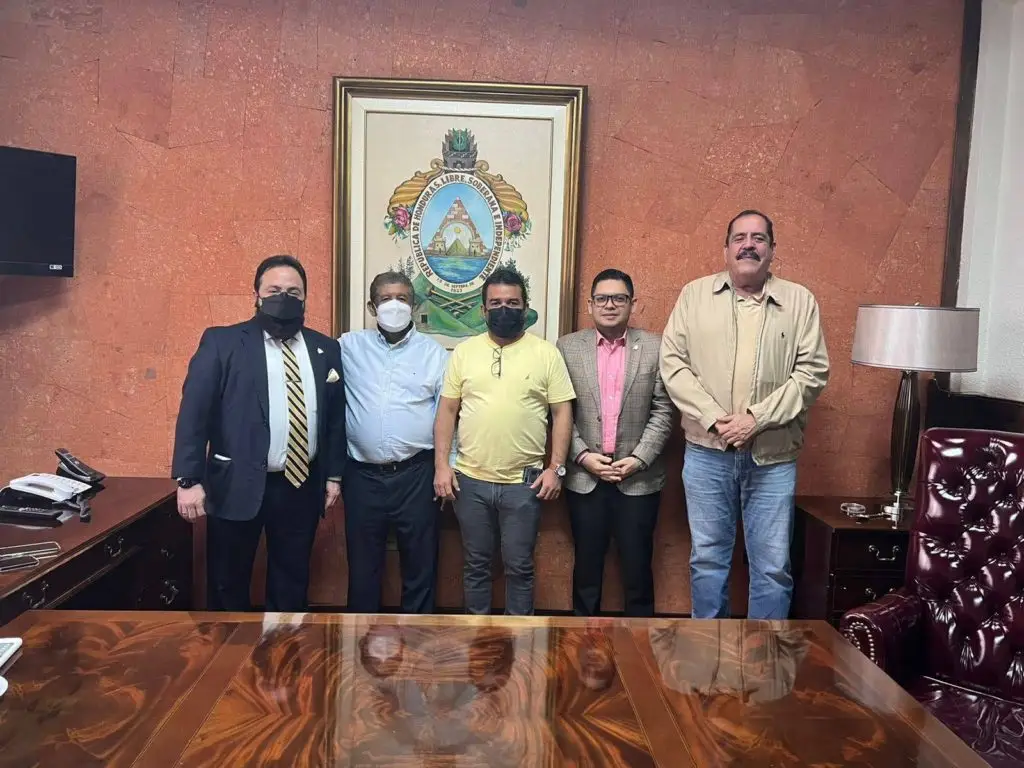
****
The Mayor’s Office in Tocoa is perhaps a reflection of how neglected the city is: the painting is peeling, the ceiling is saturated with humidity, and a failed attempt at building a second floor is apparent from a distance while a heap of trash is piling up just a few meters away.
While I was looking for Fúnez in his office, an employee told me he was on a trip to another municipality. I called him several times, but he didn’t answer. I was finally able to talk to Deputy Mayor Mario Maradiaga for a few minutes, but he then stopped answering my interview requests.
Banegas says Fúnez’s incompetence in repairing the Mayor’s Office and addressing the flooding in the streets are symptoms of a deeper problem.
“Fúnez has no regard for the people. He’s just there to seek his own benefit and to steal. The mining company has financed his political campaigns; they financed the last campaign, and Los Cachiros financed the previous one. He’s just looking for financial support to keep his business running,” she said.
